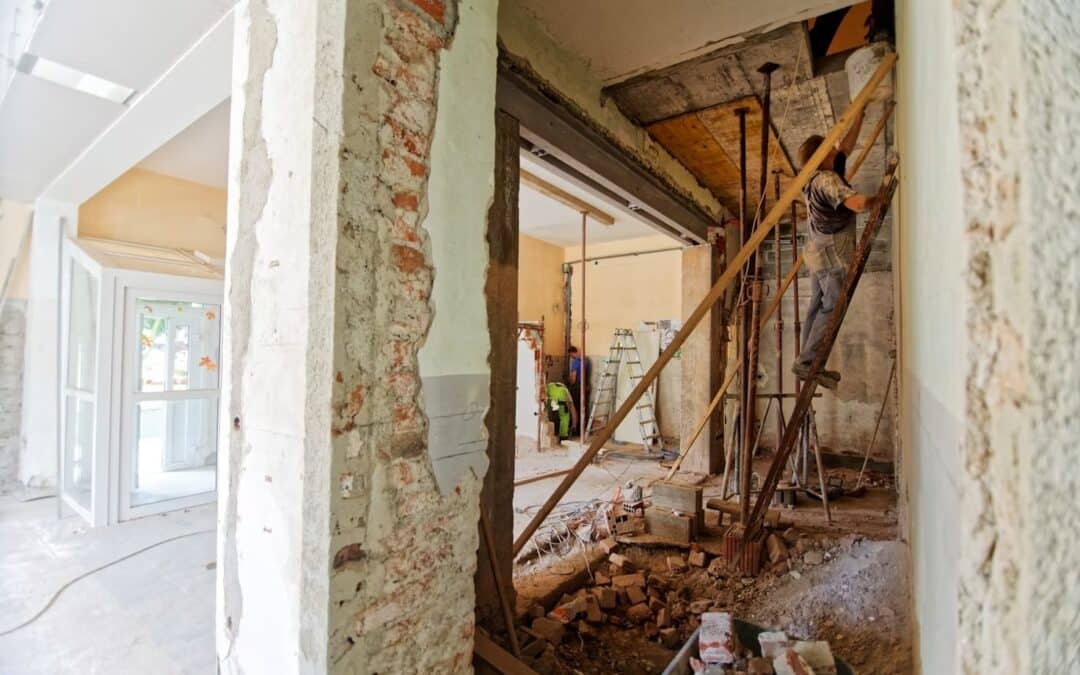Home renovation projects are exciting endeavors that offer the promise of transforming living spaces, enhancing functionality, and increasing property value.
Did you know that in 2024, Americans are estimated to spend a whopping $485 billion on home renovation projects? This is a substantial leap compared to 2020 when the average figure was $363 billion.
If you are embarking on remodeling projects, it’s crucial to be aware of these three common renovation mistakes.
1. Putting Away Permit Applications to the Last Minute
Permits are not instantaneous; they require processing time, which can vary depending on the complexity of the project and the workload of the local permitting office. They also aren’t free and there are consequences to not filing for them.
According to Investopedia, you can be charged 1% of the total construction cost for a permit and you may be looking at six weeks to get the required inspections. Additionally, if you decide to skip applying for a permit and your bank finds out, they won’t give you the loan you might have been hoping for.
While it may seem convenient to postpone dealing with permits until the eleventh hour, the consequences can be severe and far-reaching.
The key risk is that you might miss crucial deadlines and experience delays in starting or completing your remodel. These delays can disrupt timelines, increase costs, and inconvenience everyone involved in the project, from contractors to residents.
Moreover, rushing permit applications can lead to oversights and mistakes that could have been avoided with proper planning and foresight. When applications are hastily prepared, there is a higher likelihood of errors or omissions. This can result in permit rejections or requests for additional information.
Each subsequent revision further delays the project, compounding the frustrations and costs associated with the remodel. renovation mistakes
In addition to project delays, putting off permit applications can also expose homeowners to legal risks and financial liabilities. Building codes and zoning regulations exist for a reason: to ensure the safety, structural integrity, and compliance of structures within a community.
Failure to obtain the necessary permits can result in fines, penalties, or even the forced demolition of unauthorized construction. Thus, it’s better to bite the bullet and put in the work to get them done as early as possible.
2. Mismanaging Renting of Equipment
One of the most common mistakes is underestimating the quantity of equipment needed for the project. Homeowners and contractors may fail to conduct a comprehensive assessment of the tasks involved in the remodel or overlook specific tools required for certain aspects of the job.
As a result, they may rent insufficient equipment or find themselves scrambling to procure additional tools mid-project, causing delays and disruptions. To avoid this pitfall, thorough planning and consultation with contractors or experts can help identify all necessary equipment and ensure timely rental arrangements.
Similarly, people often rent equipment without considering its suitability for the task at hand or the skill level of those using it. This might include selecting equipment that is too complex or powerful for the need, leading to inefficiencies and potential damage to property or materials.
It’s a good idea to run a quick search for a query like “rent equipment near me” in the early stages of your remodeling to see what options are available. This reduces the risk of any surprises like there being no renters of heavy equipment close to you.
Remember, it’s not just hand tools and minor construction equipment that you might need to hire. As SitePro Rentals states, heavy pallets or building materials will require forklifts and telehandlers. Find a trusted rental service nearby and pay them a visit when you are free.
3. Trying to Go Ultra Budget Mode
Budgets serve as essential guidelines for managing expenses, prioritizing expenditures, and ensuring financial prudence throughout the remodeling process. However, while having a budget is crucial, it’s equally important to recognize the potential risks and dangers associated with adopting an ultra-budget approach to home remodeling.
While it may seem like a cost-effective strategy in the short term, opting for the cheapest materials, labor, and services can have detrimental consequences that outweigh the initial savings.
One of the most significant risks is compromising the structural integrity and safety of the home. Skimping on essential structural components, such as foundation repairs, roofing materials, or electrical wiring. Can lead to serious safety hazards, code violations, and costly repairs down the line.
Of course, homeowners often realize these risks but still proceed with inferior construction materials. The reason? Prices have gone up and don’t seem to be coming down anytime soon. According to data from Gor.dian, the price of steel increased by 22% in 2023. Wood and concrete show hikes of 16% and 15%, respectively.
In conclusion
As homeowners embark on remodeling projects in 2024, it’s vital to approach them with caution and foresight. While the prospect of transforming living spaces is undoubtedly exciting, we want to remember these potential mistakes. Remember, they have the potential to compromise the success and satisfaction of your home renovation, so proceed with caution.

